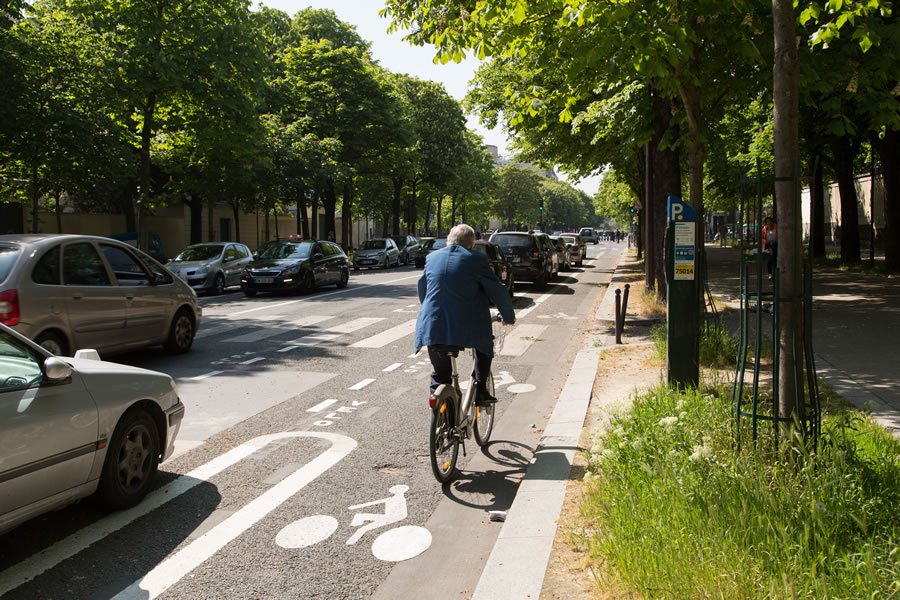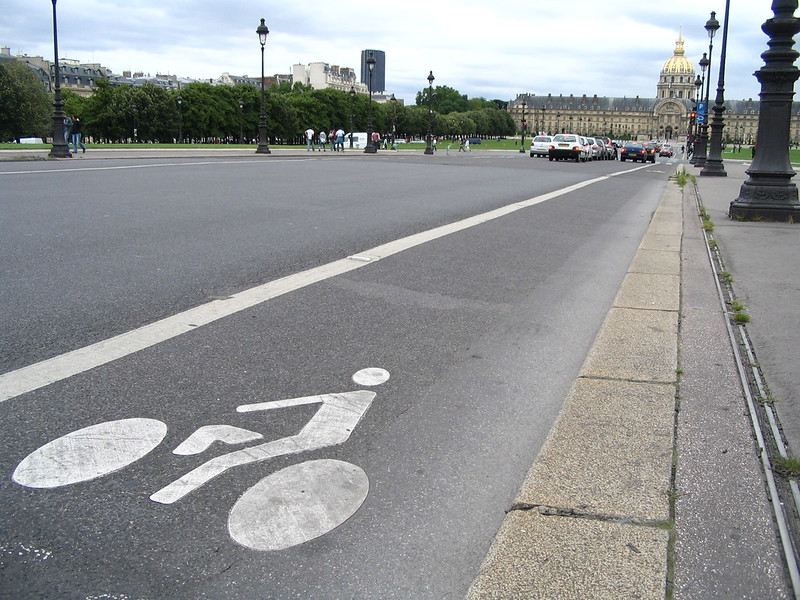- Inspiring People -
- 3mins -
- 509 views
Paris to create 650km of cycle lanes post lockdown
Paris unveils plans to install up to 650km of bicycle lanes—including a number of pop-up “corona cycleways”—with the first expected to be ready by 11 May when lockdown is eased in the French capital.
Paris to install up to 650 kilometres of temporary and permanent bicycle lanes
The French capital is the latest global city to roll out emergency bike lanes for the use of key workers and others during the lockdown. 650 kilometers of cycleways—including a number of pop-up “corona cycleways”—are planned, with the first expected to be ready by 11 May when lockdown is due to be eased in France. Before the Coronavirus crisis, Paris Mayor Anne Hidalgo had promised that every street in the city would become cycle-friendly by 2024, but fears of gridlock caused by increased car traffic once the lockdown is eased are allowing officials to accelerate Hidalgo’s existing “Plan Vélo”transport changes.

Paris is the latest global city to increase bike lanes
Paris has unveiled plans to install up to 650 kilometres of temporary and permanent bicycle lanes, with the first expected to be ready by 11 May—when coronavirus (COVID-19) lockdown requirements are due to be eased in the French capital.
According to CitiesToday, the magazine connecting global urban leaders, the €300 million investment accelerates Paris Mayor Anne Hildago’s Plan Vélo scheme, which aims to make every street in the city cycle-friendly by 2024.
It follows a global trend over the past month of cities taking advantage of less congested streets to reallocate road space–particularly to cyclists–with temporary pop-up bike lanes often appearing overnight.
Berlin has temporarily widened a number of bike lanes in the Kreuzberg district to comply with the 1.5 metre social-distancing guidelines—using removable tape and mobile signs to mark the roads.
German states have widely encouraged the use of bicycles in spite of the current restrictions, with health minister Jens Spahn and the German Cyclists Association recommending cycling as the safest option for taking necessary trips.
While these developments have been welcomed by cycling advocates, there are some concerns about safety, given how the majority of new lanes are not segregated or protected from motorists.
European Cyclists Federation co-CEO Morten Kabell told Cities Today: “If these [bicycle lanes] are made using only tape or paint, then this isn’t really protected biking infrastructure.
“We need a lot more permanent biking infrastructure and we need it to be protected, so you would actually feel safe about everyone who cycles, like kids using lanes to go to school, for instance.”
Source: CitiesToday

OTHER CYCLING RELATED PROJECTS WORLDWIDE INCLUDE:
- Milan’s Strade Aperte (Open Streets) plan to reallocate 35 kilometres of city centre road space for temporary cycle lanes, create new and widened pavements, designate streets as a priority for pedestrians and cyclists and impose a speed limit of 30 kilometres per hour.
- In the Americas, Vancouver has banned cars from Stanley Park to prioritise cyclists and pedestrians;
- Denver is introducing pop-up cycling and walking lanes on Avenues 16th and 11th
- and Bogotá is creating almost 120 kilometres of new bike routes across the city.
- The Mayor of London, Sadiq Khan, has announced plans to overhaul the city’s streets to encourage more people to walk and cycle when the lockdown is eased. Khan’s London ‘Streetspace’ initiative paves the way for the rapid construction of a temporary cycling network to give commuters an alternative to public transport, which will have reduced capacity after the lockdown as the public maintains a distance of two metres apart, in accordance with guidelines to the prevent the spread of coronavirus.
In new technical guidance on mobility during the COVID-19 outbreak, The World Health Organisation (WHO) has recommended cycling and walking for both social distancing and in meeting minimum requirements for daily physical activity.
Source: CitiesToday


